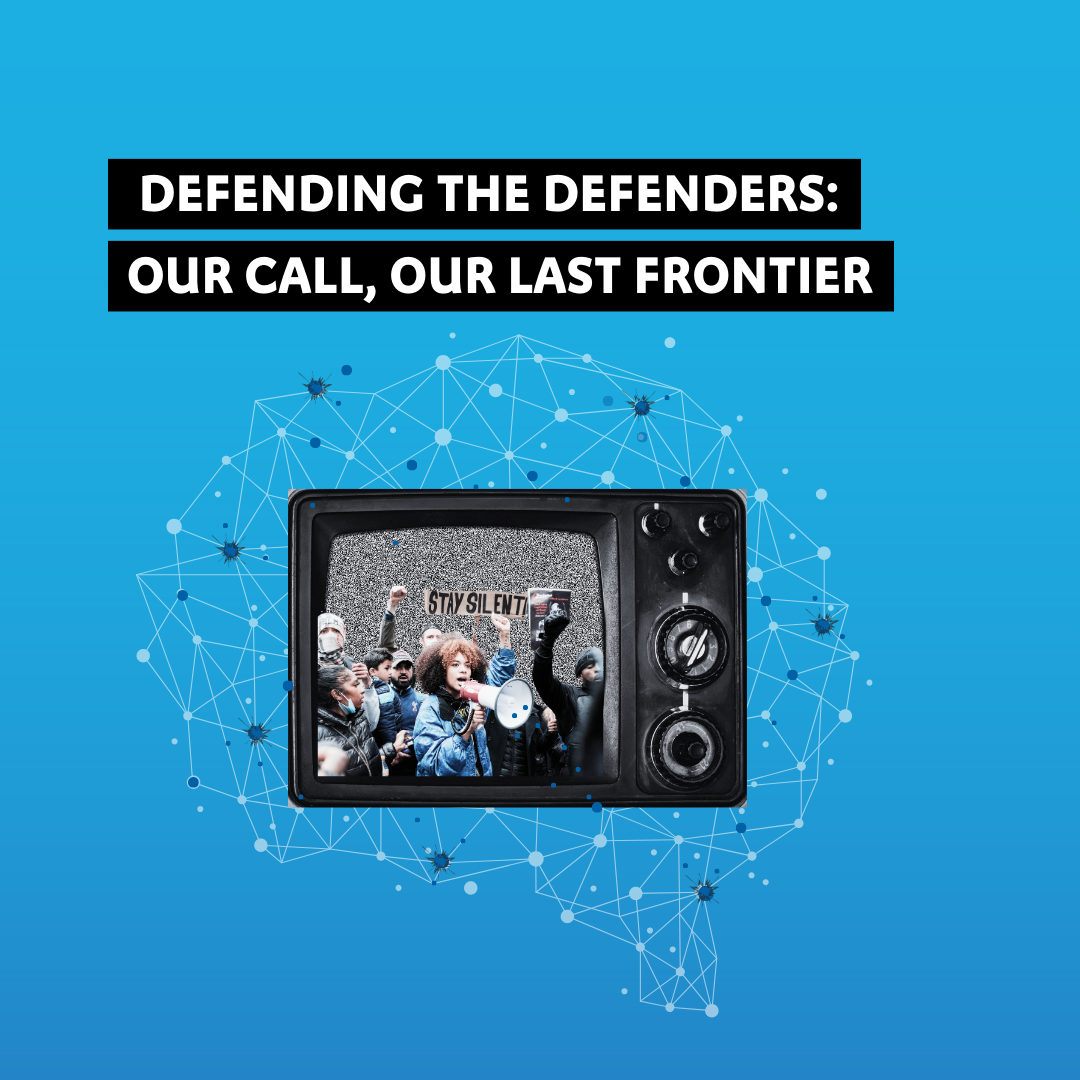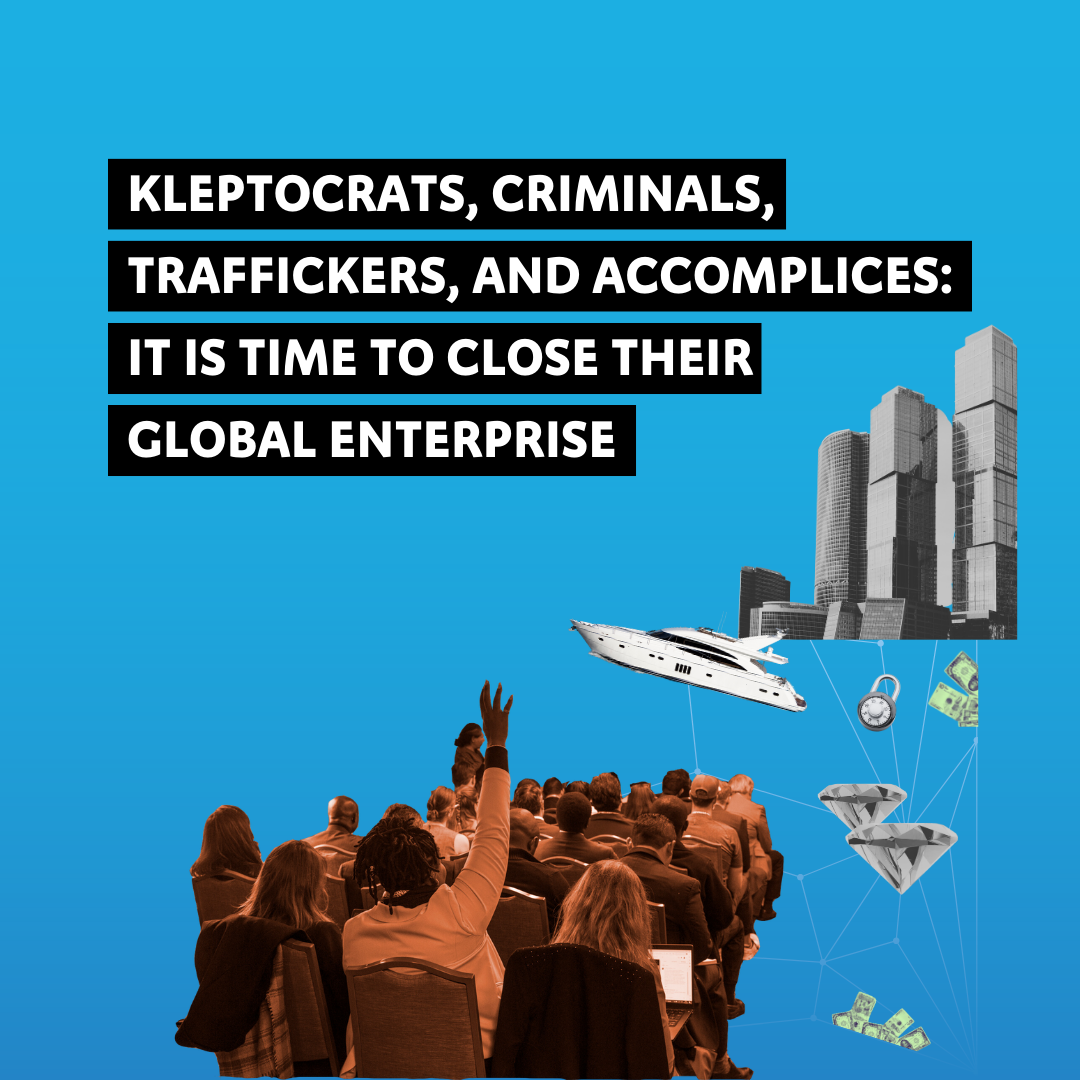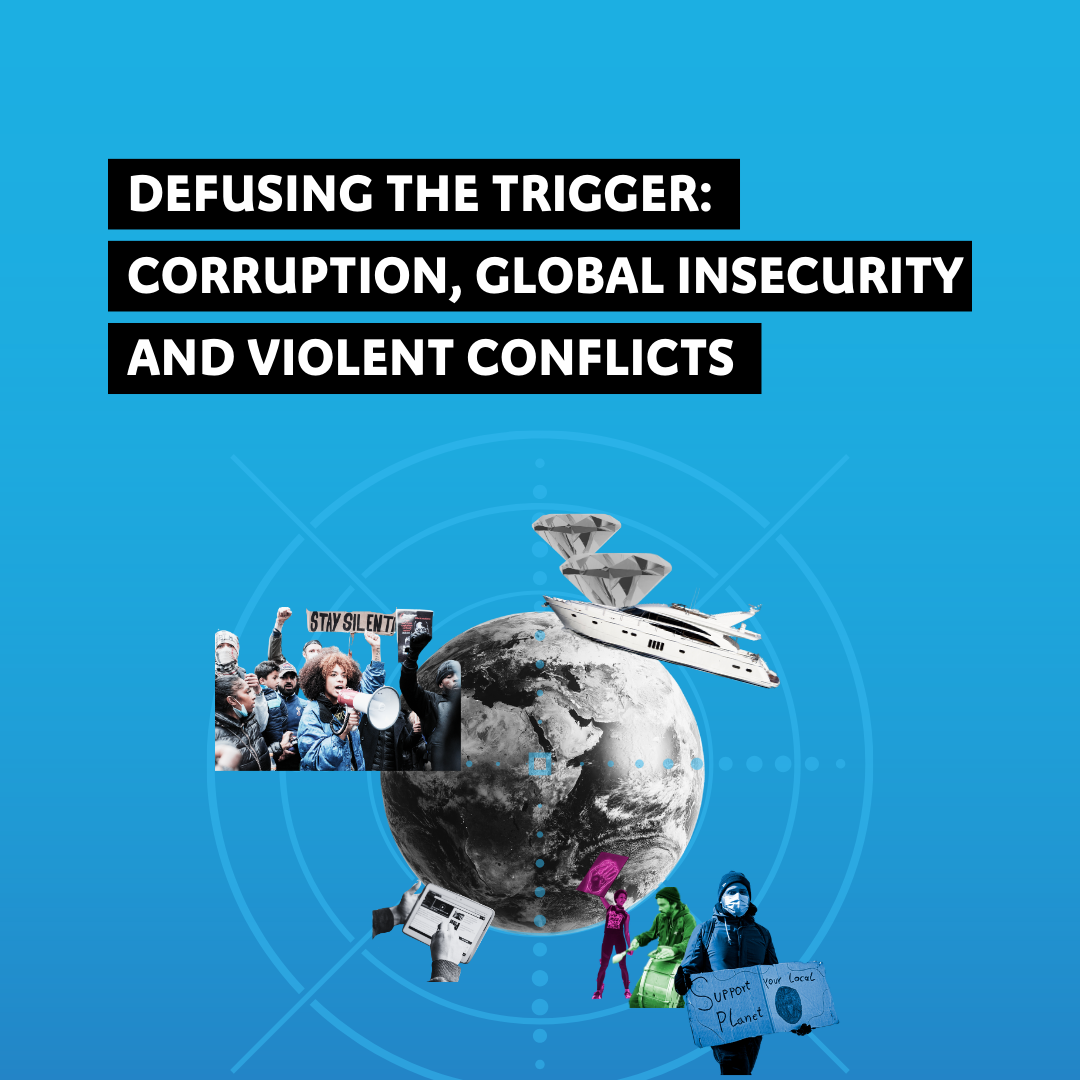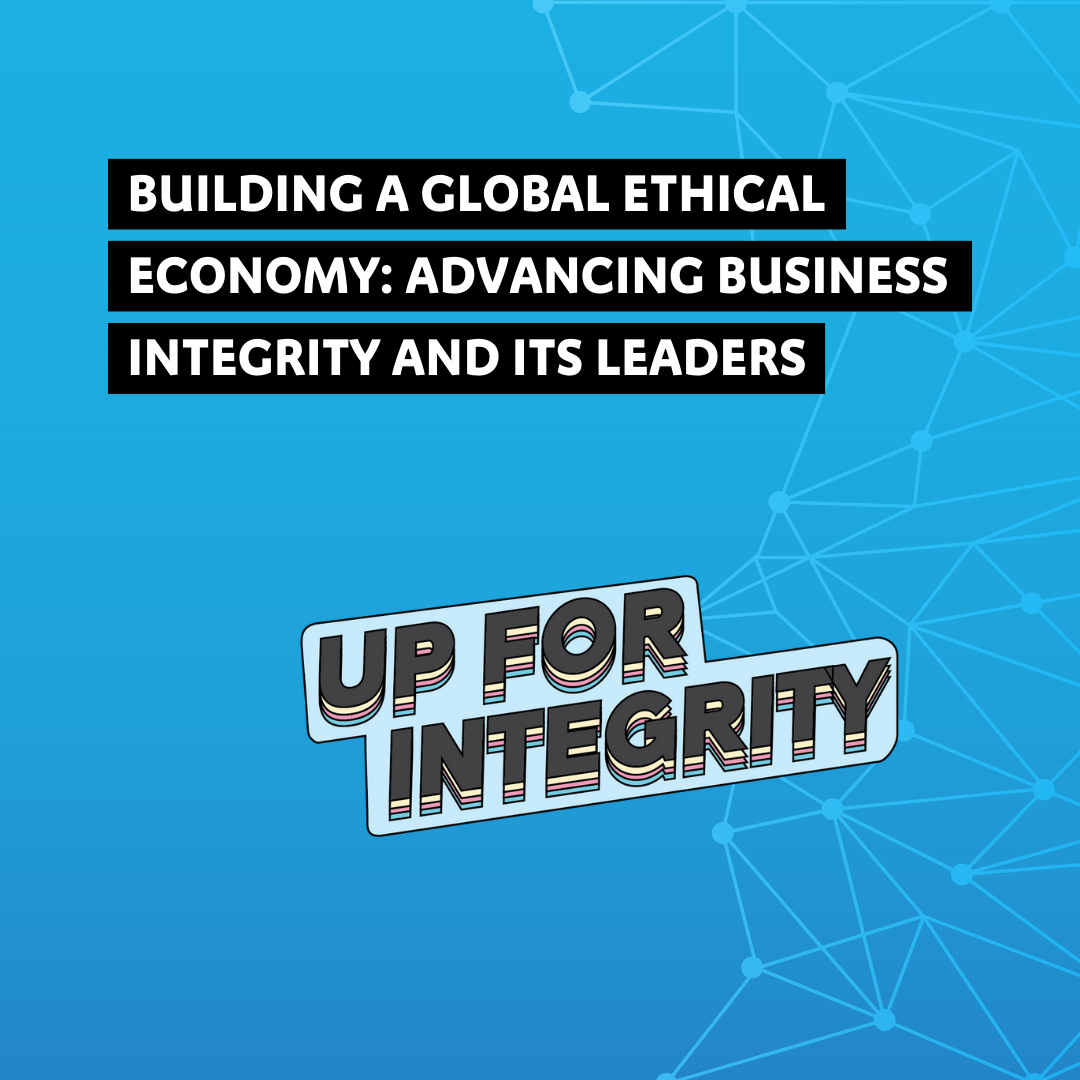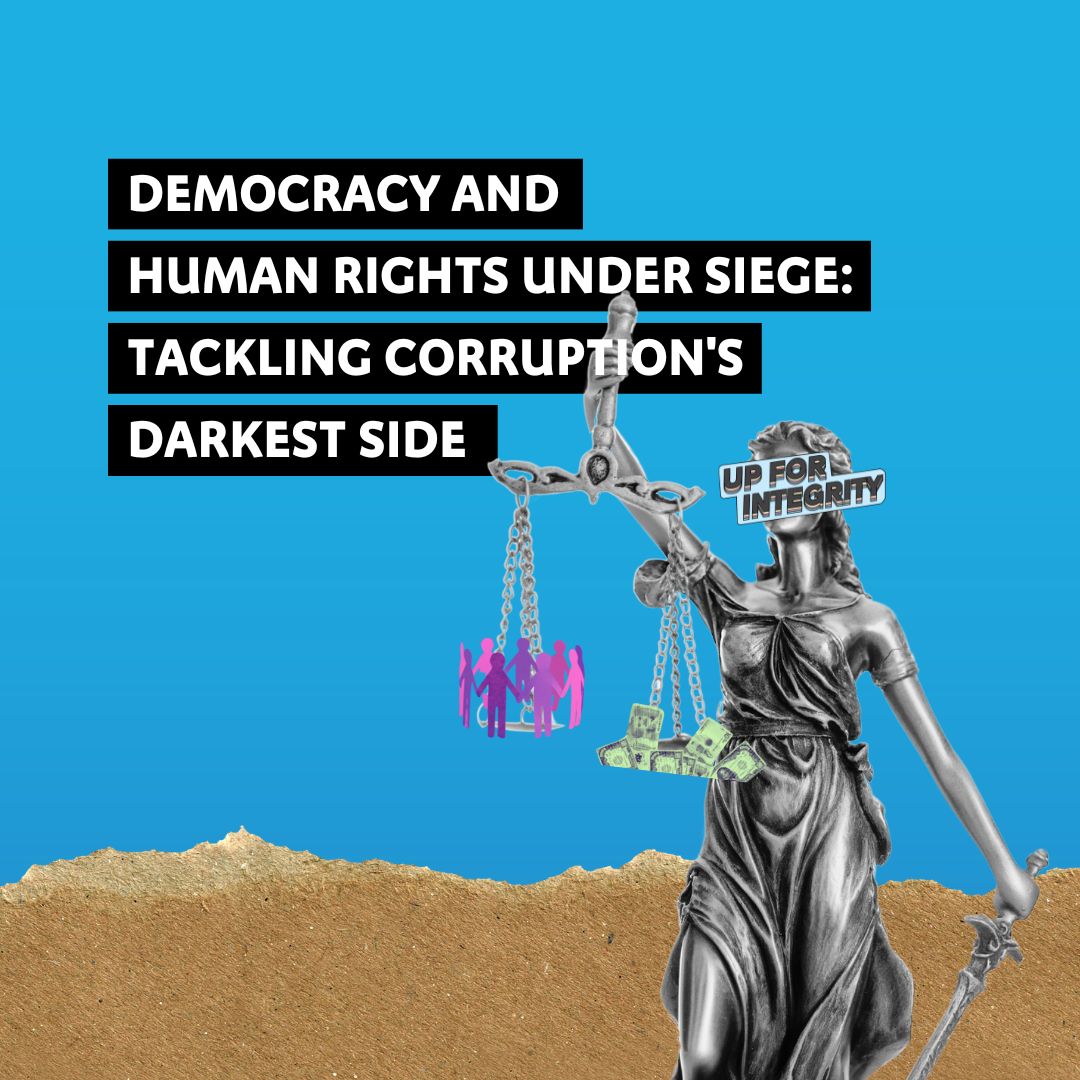View #IACC 2024 Thematic tracks
The Tech Revolution: Winning a Turbocharged Race

Technological revolutions are and have always been a double edge sword, given how fast they are adopted, for good and for bad. Laws, policies, and practices usually must race, to catch up. The current tech revolution, fuelled by artificial intelligence, has unleashed a dark side where deep fakes, high tech surveillance, large scale disinformation -and more- are exploited by both organised crime and the corrupt. This is the era of the information warfare.
We face immense opportunities yet unprecedented risks. Our movement is being benefited by early and witty adopters, but also strives to be ahead of fast and opportunistic users without a moral compass. We seek to bring greater understanding of the immense positive power of the latest tech innovations, showcase the best examples while also learning how they are turbocharging the corrupt. We aim to equip our global movement with the necessary knowledge to maximise the opportunities brought by the current revolution, to win the tech fuelled anticorruption race.
Workshops
-
New Frontiers in Using Leaked Data for Anti-Corruption Research
Reporting on leaked financial records from offshore havens and high-risk jurisdictions has sent shockwaves around the world. In the hands of data scientists, political scientists and economists, these data can reveal yet more insights into the workings of the shadow financial world. This panel examines this new frontier’s potential, challenges and ethics in anti-corruption research.
Anti-Corruption Data Collective (ACDC)
Anti-Corruption Data Collective (ACDC), Platform for Protecting Whistleblowers in Africa (PPLAAF), Organized Crime and Corruption Reporting Project (OCCRP), George Washington University and Distributed Denial of Secrets
-
AI: Ally or Enemy? Applications of Artificial Intelligence in Procurement & Democracy-Building
This session seeks to explore the complexities and contradictions of artificial intelligence and technology’s role in fighting corruption in public procurement and building democracy. With a particular focus on case studies from the global south (Africa specifically), reflections will centre on the experiences and expertise of actors in civil society, the private sector and government.
Public Service Accountability Monitor
PSAM Regional Learning Programme, Corruption Watch, Open Ownership, United Nations (UN), Former Minister of Finance, South Africa and MTN Board
-
Tackling Corruption as an Enabler of Organised Crime
This workshop aims to explore the nexus between corruption and organised crime in European seaports. The aim is 1) to explore corruption and organised crime challenges facing major ports in Europe, 2) to share good practices in tackling them, and 3) discuss ways forward for international collective action, with the ultimate goal of enhancing resilience of ports to the infiltration of corruption.
We will first talk to policy experts from the European Commission and Europol that will discuss how European cooperation is key in tackling corruption and organised crime as cross-border phenomena. After this, we will listen to law enforcement officers active in the ports of Rotterdam and Hamburg and dealing on a day-to-day basis with challenges in two of the most important ports in Europe. Finally, an expert from the pan-European research project POSEIDON will present key corruption vulnerability risks in port supply chains and ways in which collective action can enhance port resilience.
Ecorys
DG HOME – European Commission, Europol, the European Financial and Economic Crime Centre, the Port of Antwerp-Bruges and Fondazione SAFE
-
Tech for Integrity, Integrity in Tech: Risks and Opportunities of AI
Background:
Artificial intelligence (AI) shows immense promise in fostering integrity. However, with equally great risks of its misuse and abuse, questions about its integrity abound. AI is being touted as an important tool in promoting transparency, integrity, and anti-corruption. There is a need to bring together technology providers, government officials/regulators, civil society actors, and academia to explore the benefits, opportunities, and risks associated with the use of AI, which has the vast potential to deliver huge societal benefits and accelerate technology innovation while underlying challenges of managing the risks that put its integrity in question.
Objective and key discussion areas:
This workshop aims to explore how the threats and risks from AI can and should be managed to fully harness its benefits for embedding integrity in governance systems and showcase what key actors have done to regulate AI for good. The workshop will tackle the growing opportunities presented by AI and the risks of using it in fostering integrity and building integrity into governance systems. It will offer insights into how its novel overall application in governance can be maximized while mitigating the risks of it being misused an abused by corrupt actors that could raise concerns with privacy, transparency, and even human rights.
United Nations Development Programme (UNDP)
-
Empowering Change: Women Leading AI in Anti-Corruption
There is a lack of women’s representation in the AI field. Nonetheless, women are using these technologies in anti-corruption efforts while also considering limitations and ethical issues associated with AI. This workshop on using AI in anti-corruption will explore ethical dilemmas, opportunities, challenges, and gender inclusion in this fascinating new field for public policy and research.
Action4Justice
Politecnico di Milano, University of Bologna, Anticorruption Action Center, Centre for Digital Governance - Hertie School of Governance and DLA Piper
-
Corruption and Cryptocurrency. The Good, the Bad and the Ugly (Ws 6.6)
We will teach crypto beginners how to monitor and trace cryptocurrency on the blockchain and facilitate a debate about how best to deploy crypto and blockchain to fight corruption. Our techniques could be useful for journalists, government regulators, and corporations interested in identifying and curbing the use of cryptocurrency to fund corruption.
StoneTurn
StoneTurn, CNBC Crypto Contributor, Helium Foundation and Former European Union Government Official
-
How to Turn the Tide of a Turbocharged Race against Corruption and Impunity?
Banks collaborate with specialised companies to implement mechanisms to detect and prevent dirty money flows. The vast volume of transactions, the intricate global nature of corruption and the increasing use of technology embolden criminals to frustrate these efforts. Panellists will exchange views on the global policy framework required to turn the tide of this turbocharged race.
DT4C Alliance
DT4C Alliance, Bank of Lithuania, Dow Jones Risk & Compliance, Law firm Sorainen, Lithuanian AML Centre of Excellence and Transparency International
-
Technology and Innovation to Supercharge Multisectoral Anti-Corruption Efforts
Digital technologies, innovation boost anti-corruption efforts and accelerate progress in achieving the SDGs. This workshop aims to showcase practitioners’ perspectives from country-level adoption of technologies that are helping in the fight against corruption in various sectors. Opportunities and challenges such as the digital divide and data privacy, will also be explored and solutions proposed.
World Health Organization (WHO) and Global Network on Anti-Corruption, Transparency and Accountability (GNACTA) Steering Committee
United Nations Development Programme (UNDP), World Health Organization (WHO) and Global Network on Anti-Corruption, Transparency and Accountability (GNACTA) Steering Committee
-
Elections in The Digital Era: Threats and Opportunities for Democracy
In 2024, more than half the world will head to the elections, facing new challenges caused by the sharp development of technologies. The workshop addresses strategies to combat threats like AI misuse, bot attacks, and spreading misinformation on social media that could compromise the integrity of political campaigns. We’ll also spotlight how digital tools can enhance election transparency.
The CHESNO Movement
The CHESNO Movement, International Foundation for Electoral Systems (IFES), Meta and Corruption Prevention and Combating Bureau Latvia
-
Civil Society Under Attack! - Confronting Corruption from Different Perspectives
Workshop “Innovation and Action”: Explore innovative solutions to combat corruption and strengthen democracy and human rights, emphasizing the inclusion of population groups. Objectives: promote awareness and participation of population groups, exchange experiences, identify tools, foster collaboration among stakeholders, and develop concrete actions.
Asociación para una Sociedad más Justa (ASJ), Transparency International Honduras (TI - Honduras)
-
A Deeper take on The Costs of Illicit Financial Flows and Proceeds of Corruption
Illicit financial flows (IFFs) strip countries of important resources and pose challenges to the integrity of financial systems, yet efforts to tackle them have been insufficient. Moreover, the known estimates of the magnitude of IFFs, while significant and useful, do not provide a clear picture of the economic impact and costs of these flows for countries. The session will discuss new approaches to understanding and tackling IFFs, with a focus on identifying core risks and channels associated with the underlying financial crimes such as corruption and tax evasion, and the specific role of countries, including large financial centers, that facilitate and shelter illicit financial flows.
International Monetary Fund (IMF)
-
Investigative Journalism and Digital Threats in 2024 Elections
This year, in 2024, thousands of journalists from all over the world have and will be reporting on and investigating the impact of digital threats (disinformation, spyware, trolling and digital violence, among many others) in elections. Sharing ideas, strategies, and techniques for investigation is critical in a year where voters in more than 60 countries will go to the polls.
In this panel, leading journalists and experts — who have all been covering elections in 2024 — share perspectives on the impact of digital threats in elections in different continents. They will also share tips and tools about how to better expose the individuals and organizations behind disinformation campaigns.
GIJN also published a Reporter’s Guide to Investigating Digital Threats, featuring expert advice from journalists and security analysts working to combat disinformation, malware, spyware, and trolling.
Global Investigative Journalism Network (GIJN)
Columbia University’s Tow Center for Digital Journalism, Inkyfada, Latin American Center for Investigative Journalism (CLIP), ProPublica and Global Investigative Journalism Network (GIJN )
-
Put Some PEP in Your Step: Enhancing Investigations with Advanced PEP Asset Tracing
This workshop will demonstrate a novel platform for investigating politically exposed persons (PEPs) and their assets. Participants will learn about the recent development of one of the only existing comprehensive regional investigative PEP softwares developed by C4ADS. The PEP environment showcase will demonstrate how to search for PEP entities, identify their declared assets, and develop leads.
C4ADS
View #IACC 2024 Thematic tracks
- The Theme & Thematic tracks
- All Workshops #IACC2024
- Defending The Defenders: Our Call, Our Last Frontier
- Greed and Corruption: A Disease Accelerating the Global Environmental Catastrophe
- Kleptocrats, Criminals, Traffickers, and Accomplices: It Is Time to Close Their Global Enterprise
- Defusing The Trigger: Corruption, Global Insecurity and Violent Conflicts
- Building a Global Ethical Economy: Advancing Business Integrity and Its Leaders
- The Tech Revolution: Winning a Turbocharged Race
- Democracy and Human Rights Under Siege: Tackling Corruption’s Darkest Side
- Extras
